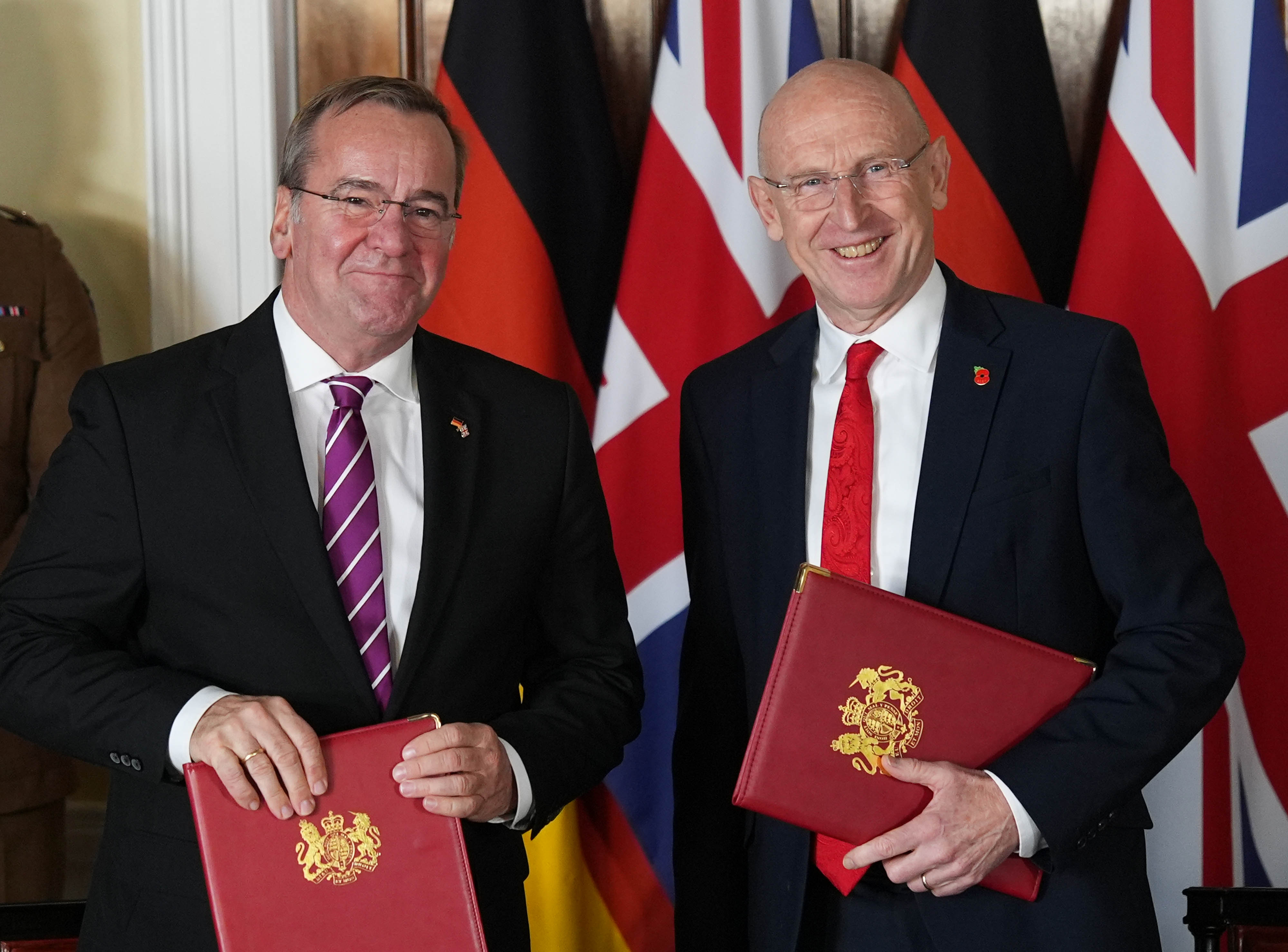How we’ll use our landmark new defence pact to reset Brexit
Defence secretary John Healey and federal minister of defence of Germany, Boris Pistorius on the significance of the new pact they’ve signed to strengthen European security – including allowing the German air force to operate from base in Britain


We face an era of growing instability and a rising tide of aggression. To defend our shared values, we need closer collaboration in Europe and within our Nato alliance. To deter our adversaries, we need powerful shared capabilities and integrated armed forces.
Today, Britain and Germany will take a major step forward in strengthening our defence cooperation. We will sign the Trinity House Agreement that will bind our two nations closer together, strengthen European cooperation, and bolster our collective security.
This is a milestone moment which comes at a critical time for European and transatlantic security. With Russia’s continued war of aggression against Ukraine and threats escalating on multiple fronts, we cannot take our security for granted. We must act, and act together.
That is why this landmark agreement, as the first pillar in a wider UK-Germany treaty, will help build stronger ties between our armed forces, enhance our joint capabilities and boost our economies.
This partnership between two of Europe’s biggest defence spenders is the culmination of months of hard work and commits us to far-reaching military, industrial and strategic cooperation. In practical terms, it will kickstart a series of flagship projects across air, land, sea and long-range weapons. Our projects are open to allies and partners. We are stronger together.
That includes our commitment to work together on our air defences to better protect European airspace, and the rapid development of new long-range strike systems, which are more precise and will reach further than any current option available. It means developing the Boxer armoured vehicle programme. And it means the exploration and development of drones and other systems of the future.
The agreement will unlock strengthened cooperation between our armed forces, with joint training and exercises to strengthen Nato’s eastern flank, and German aircraft operating periodically from Lossiemouth to help protect the North Atlantic.
Today’s agreement will not only make Europe safer and strengthen our collective security, but also our respective defence industries – boosting economies, jobs and growth. For German industry, the benefits will be considerable, such as larger markets for future technologies and advanced systems. In the UK, the agreement paves the way for the construction of a new artillery gun barrel factory, supporting hundreds of jobs and revitalizing domestic manufacturing.
The agreement confirms the unwavering commitment of both our nations to support Ukraine and face down Russian aggression – Europe’s most decisive challenge today. It includes provisions for arming German Sea King helicopters with modern missiles to provide Ukraine with a powerful new capability.
As staunch Nato members and European partners, this agreement reaffirms our commitment to the wider transatlantic alliance, and Nato’s integral role in protecting peace in Europe. It will directly benefit the UK and German units committed to Nato in Estonia and Lithuania. Exercising and operating together more, will ensure that land forces on Nato’s eastern flank create a strong deterrence and are ready to fight if required. We are united in our resolve to deter our adversaries and defend our freedoms. And this agreement means closer cooperation on protecting critical infrastructure, such as undersea cables.
The Trinity House Agreement shows that our two nations recognise the action these serious times demand. It shows Britain and Germany are determined to work together in securing Europe’s future, and deliver mutual benefits for our economies, military capabilities, and the wider Nato alliance.
This is a milestone moment in the ongoing efforts to strengthen European security and ensure that both our nations are prepared to face current and future threats. Our armed forces and defence industries are set to work more closely together than ever before.
And we have sent a resounding message to those who threaten us: Britain and Germany, standing with our international and European allies and partners, are united in our resolve to protect and defend Europe and the Euro-Atlantic.






Join our commenting forum
Join thought-provoking conversations, follow other Independent readers and see their replies
Comments